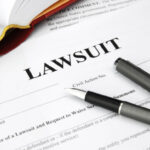Did you know?
— According to the Insurance Information Institute, more than 10 percent of all catastrophic losses are due to winter storms.
— According to a report by the Insurance Institute for Highway Safety (IIHS), there were 201 fatal crashes involving animals, a 27 percent increase from 2002. Motorists struck deer – the biggest problem – in three out of every four crashes.
— According to the Institute for Business and Home Safety, claim payments by all insurance companies over the past decade for losses due to frozen and broken water pipes have exceeded $4 billion.
— IIHS also reports that 20 percent of all collisions resulting in damage claims occur in parking lots.
“Many accidents that occur during the winter season are preventable if proper precautions are taken,” said Madelyn Flannagan, IIABA vice president of education and research. “Doing so will keep you and your loved ones physical safe as well as financially secure in the event that you experience severe property damage.”
Independent insurance agents can provide valuable advice and consumer tips on winter safety. To help the public as winter approaches, IIABA offers its free, comprehensive and fully downloadable Winter Survival Guide. Here’s a brief sampling of some of the winter survival tips:
Housing:— Prevent ice dams (ice build up that can lead to leaks, cracks and mold) by removing leaves, sticks and other debris from gutters or install gutter guards (available in most hardware home stores) that will prevent debris from interfering with water drainage.
— Prevent serious damage and injury by trimming trees and branches that may be weakened by snow, ice and wind.
— Keep the inside temperature of the home at 65 degrees or warmer to ensure that the pipes don’t freeze.
— Check the structural ability of the roof to sustain unusually heavy weight from the accumulation of snow and ice. After a heavy storm, check for water stains in the attic and on the overhang. Lastly, repair or replace split or loose shingles and fix any leaks.
— If leaving the home for several days, turn off the water completely and drain the pipes, or keep water drizzling through one or two faucets, as moving water prevents freezing. However, if leaving the home for an extended period of time, the former is best. It also helps to have someone check the home every day while gone.
— If the pipes do freeze, quickly shut off the water and immediately direct the plumber to the problem.
— Homeowners are liable for any injuries that occur on their property. Therefore, keep kitty litter, sand or rock salt on hand to sprinkle over driveways, walkways or sidewalks that become frozen.
General winter driving & safety:
— To fully winterize the car, have a mechanic check the battery, antifreeze levels, thermostat, lights, heater, brakes, defroster, oil levels, hazard lights, headlights, wipers, and the ignition and exhaust systems.
— Install good winter tires and make sure they have adequate tread.
— If the door locks are frozen, fill a container with lukewarm water and pour it on the lock. This should melt the ice away enough to insert a key and unlock the door. Don’t try to chip the ice away with a key as this may damage the key and the car’s finish. Never pour hot water on windows, as they may crack.
— Maintain a “winter car kit” in case getting stuck on the road. Keep the automobile stocked with flashlights and extra batteries, a first aid kit with pocket knife, extra clothes, jumper cables, high energy “munchies,” small tools (pliers, wrench, screwdriver and shovel) and plenty of bottled water.
— Crashes involving animals are on the rise. Therefore, always use a safety belt or wear a helmet if traveling by motorcycle. Additionally, keep eyes moving; don’t just focus on the middle of the road.
Parking lot safety:
— Watch for cars cutting diagonally across lots.
— When backing out of a parking spot, be aware of waiting cars, others who are backing out at the same time and motorists who speed through lanes.
— Beware when mailing those holiday greeting cards. Post office parking lots have the highest incidence of accidents due to frequent customer turnover.
— Put all shopping bags in the trunk. Do not keep them in the front or back seat where they are visible to thieves.
Fire prevention:
— Keep a first-aid kit in the home.
— Install a smoke detector and make sure it is working properly.
— Inspect decorative lights each year for frayed wires, bare spots, gaps in the insulation, broken or cracked sockets, and excessive kinking or wear before putting them up.
— Do not overload outlets. Connect strings of lights to an extension cord before plugging the cord into the outlet.
— Never leave fireplaces, space heaters or candles unattended.
— Have the chimney, chimney vent and flue cleaned and inspected annually.
— Cooking is the leading cause of home fires. Never leave food cooking unattended and keep a fire extinguisher in the kitchen at all times.
— Factoid — Older adults (ages 65 and older) are twice as likely to die in fires as any other age group. The death rate for those 85 and older is four times the national average. Older people are also at higher risk of injury from fires.
Winter sports:
— Take a lesson to learn good technique from a qualified instructor.
— Use the right equipment.
— Wear protective gear, including eye protection.
— Check sleds for jagged, sharp edges and protruding rivets.
— Teach children the importance of checking sliding areas before sledding down slopes, as well as how to stop or bail off sleds in emergencies.
— Never hook sleds onto motorized vehicles.
— Know how to properly operate the particular model of a snowmobile before driving it.
— Conduct a safety check before each snowmobile ride. Never start without a full tank of gas.
— Know the terrain. Know where fences, gullies, and rocks may be hidden. Beware of open bodies of water and thin ice and never snowmobile alone, attempt stunts or use excessive speed.
Last but not least:
Review one’s homeowners and auto insurance policies, as well as other insurance policies periodically with an insurance agent or company representative to make sure one has sufficient coverage to protect the investments made in the home, automobile, and other areas. Also, it’s extremely important to report any property damage to an insurance agent or company representative immediately.
For even more winter survival strategies download the Winter Survival Guide and visit http://www.independentagent.com for more information.
Was this article valuable?
Here are more articles you may enjoy.

 Supreme Court Allows More Transport Workers to Bypass Arbitration and Sue Employers
Supreme Court Allows More Transport Workers to Bypass Arbitration and Sue Employers  Johnson Controls Unit to Pay $750M to Settle ‘Forever Chemicals’ Lawsuit
Johnson Controls Unit to Pay $750M to Settle ‘Forever Chemicals’ Lawsuit  California Chiropractor Sentenced to 54 Years for $150M Workers’ Comp Scheme
California Chiropractor Sentenced to 54 Years for $150M Workers’ Comp Scheme  Synopsys Sued by Private Equity Firm for Shopping $3 Billion Unit
Synopsys Sued by Private Equity Firm for Shopping $3 Billion Unit 